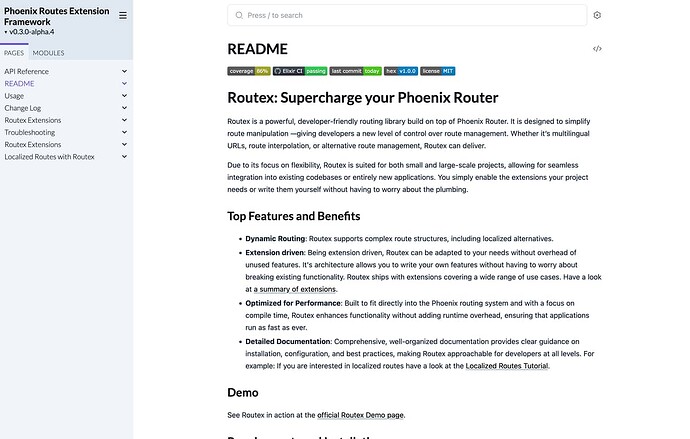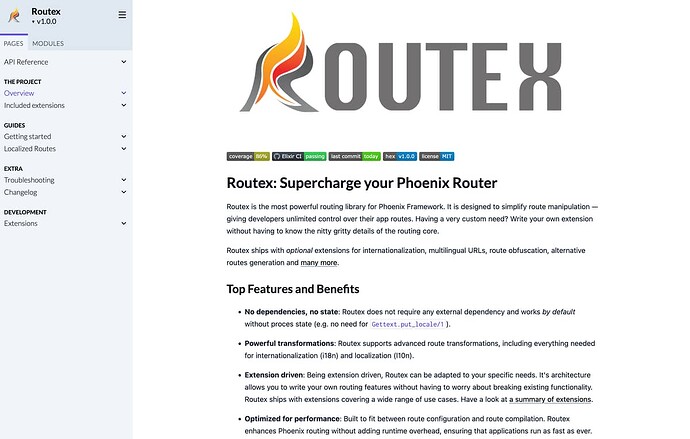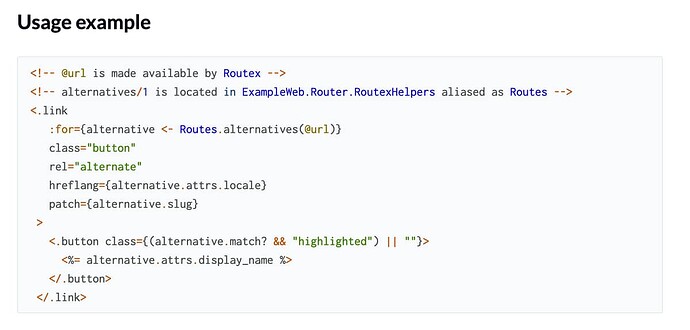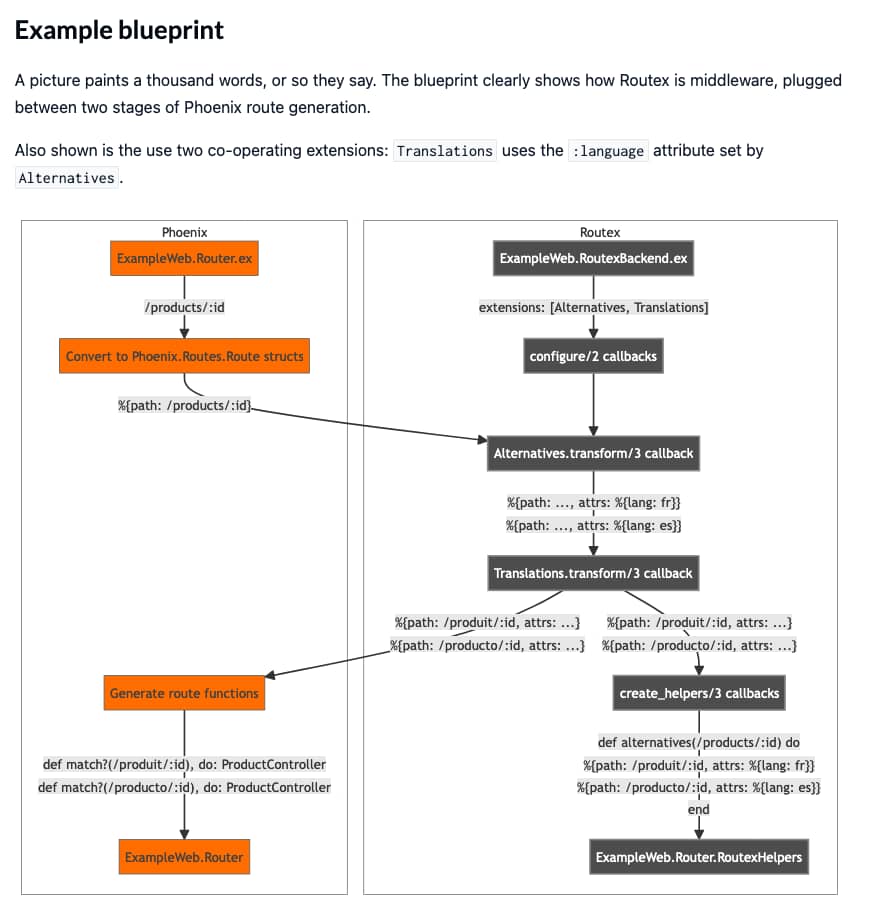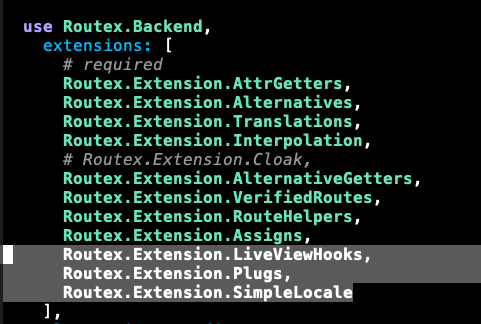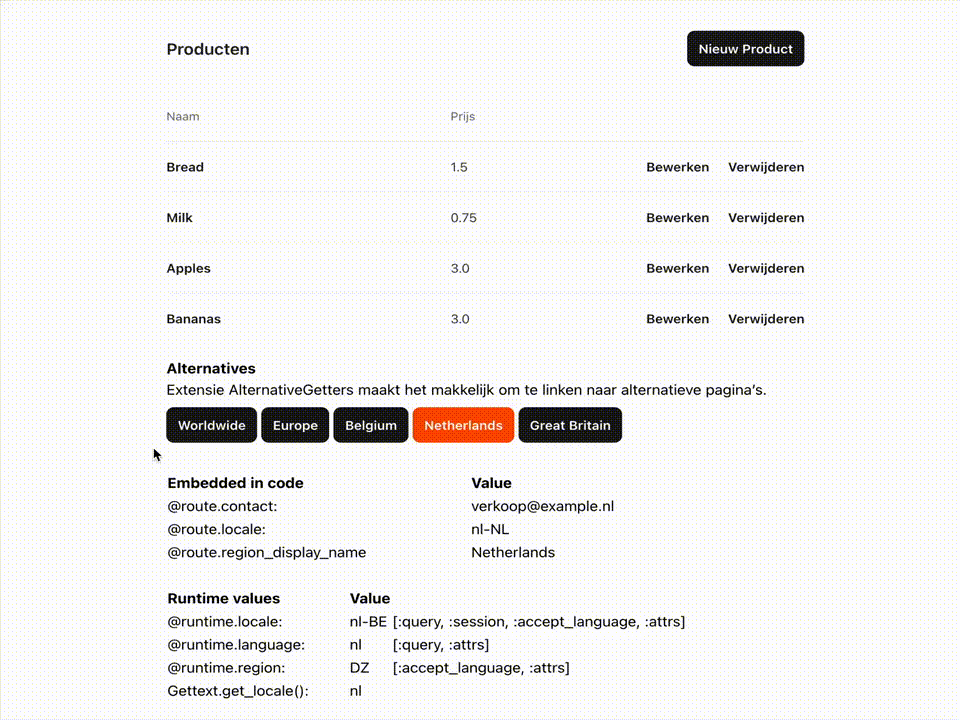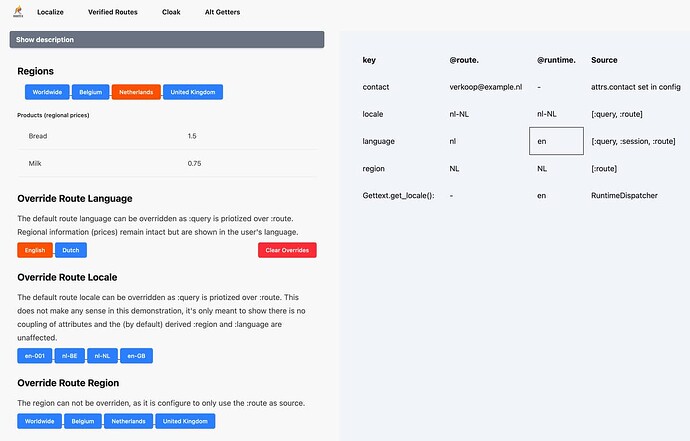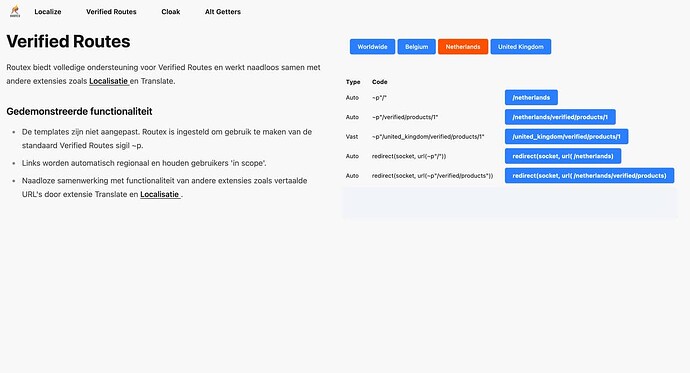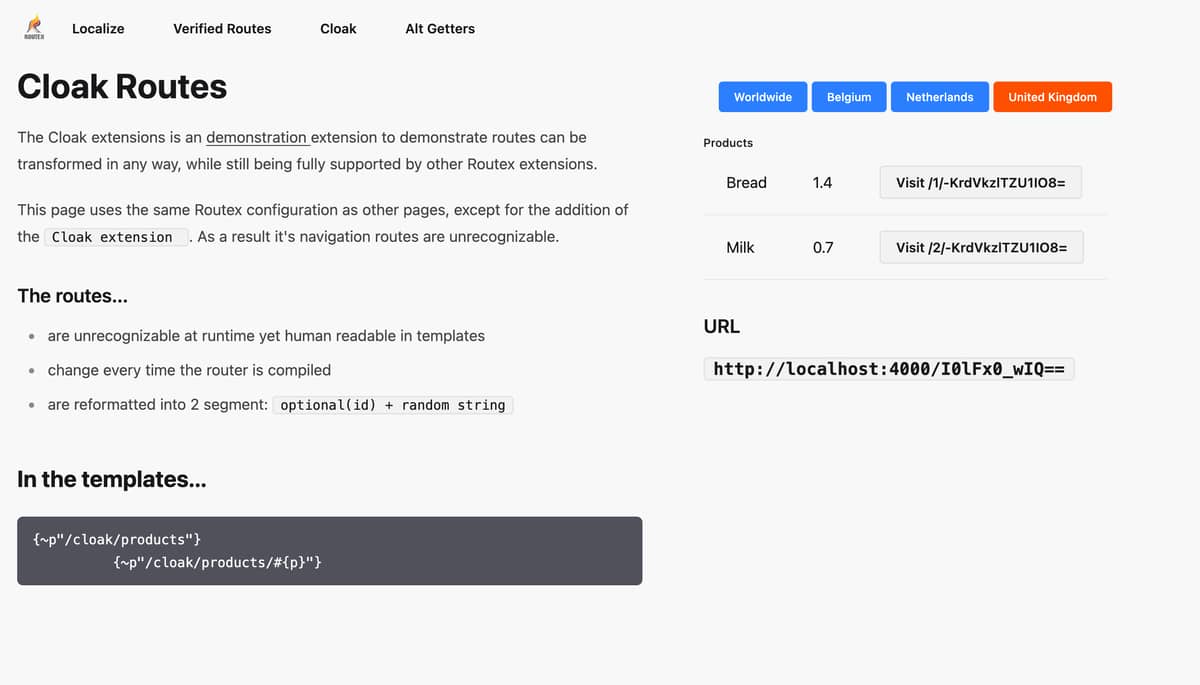This powerful library works together with Phoenix Router to provide the ultimate routing solution. It simplifies route manipulation, giving you the control you need to handle even the most demanding routing requirements.
Routex comes with extensions for internationalization (i18n), localization (l10n), translated (multilingual) URLs, alternative routes generation and many more. Its modern extensible architecture enables you to easily build custom solutions that work harmoniously with other extensions.
Top Features and Benefits
-
No dependencies, no state: Routex is unique in not requiring any external dependency and works by default without proces state.
-
Powerful transformations: Routex supports advanced route transformations, including everything needed for internationalization (i18n) and localization (l10n).
-
Extension driven: Being extension driven, Routex can be adapted to your specific needs. It’s architecture allows you to write your own routing features without having to worry about breaking existing functionality. Routex ships with extensions covering a wide range of use cases. Have a look at a summary of extensions.
-
Optimized for performance: Built to fit between route configuration and route compilation. Routex enhances Phoenix routing without adding runtime overhead, ensuring that applications run as fast as ever.
-
Detailed documentation: Comprehensive, well-organized documentation provides clear guidance on installation, configuration, and best practices, making Routex approachable for developers at all levels. For example: If you are interested in internationalization (i18n) or localization (l10n) have a look at the Localized Routes Guide.
Drop-in for Phoenix Routes and Cldr Routes
Routex can be configured as a drop-in replacement for both the native Phoenix Routes and Cldr Routes (using an adapter extension). You can give it a try without modifications to your templates, paths and links!
Installation and usage
Usage Guide - requirements and installation. instructions.
Documentation - from step-by-step guides till in-depth explanations.
Give it a try!
Online demo - have a look or get the code.
Links
Route solutions comparison
How Routex and Phoenix Router work together
Upcoming:
- LiveView lifecycle hooks and Plug callbacks
- Rewritten Usage guide
- Installation using Igniter
- Param translation (?)
If you need something in particular, send a message and we’ll have a look!

